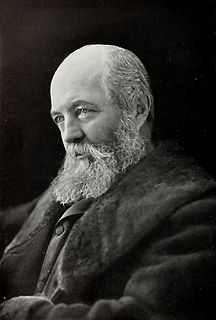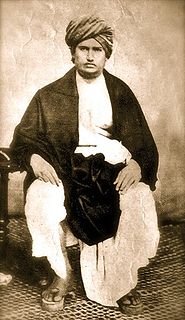A Quote by Mahatma Gandhi
It is difficult for me to regard anyone who obeys no moral principle in his conduct to be a religious man.
Related Quotes
I consider myself to be a man of principle. But, what man does not? Even the cutthroat, I have noticed, considers his actions "moral" after a fashion. Perhaps another person, reading of my life, would name me a religious tyrant. He could call me arrogant. What is to make that man's opinion any less valid than my own? I guess it all comes down to one fact: In the end, I'm the one with the armies.
[T]he central problem of government is a religious one; and anyone who assumes that he can form his political beliefs without consulting his ethics, which have their basis in religious conviction, is deceiving himself either about the true nature of government or his moral responsibility for his actions
Men live a moral life, either from regard to the Diving Being, or from regard to the opinion of the people in the world; and when a moral life is practised out of regard to the Divine Being, it is a spiritual life. Both appear alike in their outward form; but in their inward, they are completely different. The one saves a man, but the other does not; for he that leads a moral life out of regard to the Divine Being is led by him, but he who does so from regard to the opinion of people in the world is led by himself.
Prominent and influential editors, accustomed to deal with politicians, men of an infinitely lower grade, say, in their ignorance,that he acted "on the principle of revenge." They do not know the man. They must enlarge themselves to conceive of him.... They have got to conceive of a man of faith and of religious principle, and not a politician or an Indian; of a man who did not wait till he was personally interfered with or thwarted in some harmless business before he gave his life to the cause of the oppressed.
There can be no truly moral choice unless that choice is made in freedom; similarly, there can be no really firmly grounded and consistent defense of freedom unless that defense is rooted in moral principle. In concentrating on the ends of choice, the conservative, by neglecting the conditions of choice, loses that very morality of conduct with which he is so concerned. And the libertarian, by concentrating only on the means, or conditions, of choice and ignoring the ends, throws away an essential moral defense of his own position.
But medicine has long had all its means to hand, and has discovered both a principle and a method, through which the discoveries made during a long period are many and excellent, while full discovery will be made, if the inquirer be competent, conduct his researches with knowledge of the discoveries already made, and make them his starting-point. But anyone who, casting aside and rejecting all these means, attempts to conduct research in any other way or after another fashion, and asserts that he has found out anything, is and has been victim of deception.
To me the sole hope of human salvation lies in teaching Man to regard himself as an experiment in the realization of God, to regard his hands as God's hand, his brain as God's brain, his purpose as God's purpose. He must regard God as a helpless Longing, which longed him into existence by its desperate need for an executive organ.









































